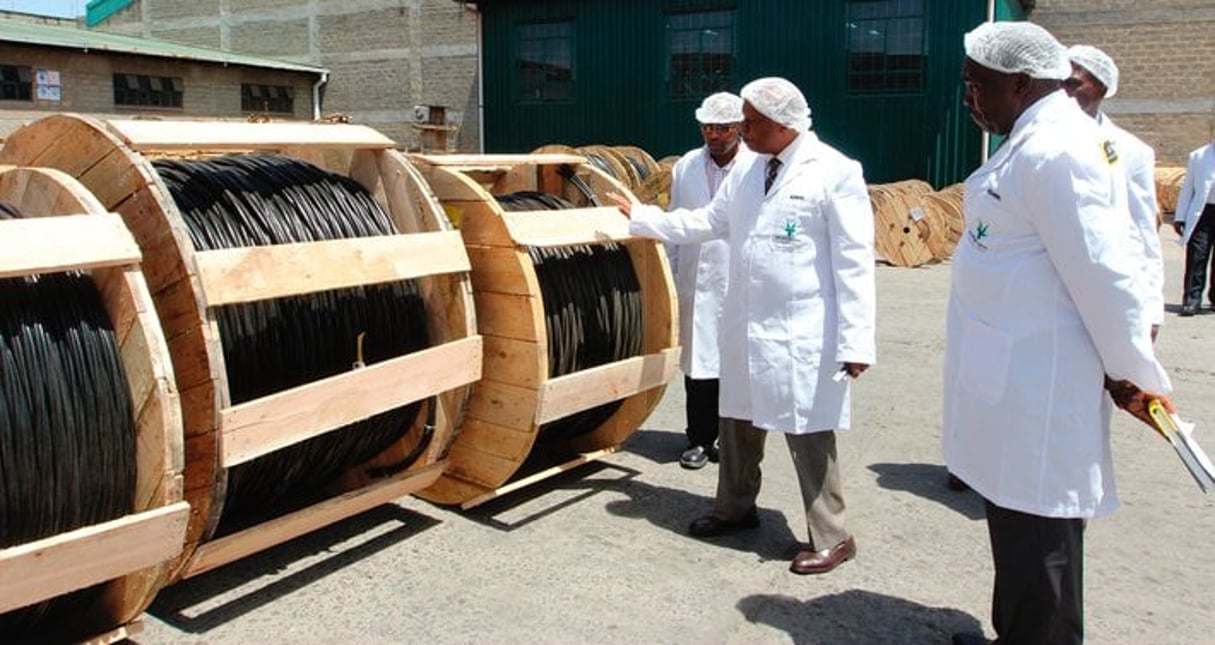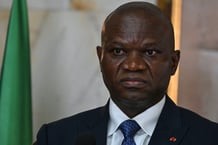Kenya’s Transcentury tries to steady the ship
Buffeted by the high cost of borrowing and some strategic missteps, Kenyan infrastructure company and cable manufacturer TransCentury is in the midst of a crisis.

Kenyan industry secretary Julius Korir visits East Africa Cables’ refurbished Nairobi copper production plant. © Photo: Jennipher Wachie
Chief executive Gachao Kiuna resigned in January before the company reported a 2015 loss of KSh2.4bn ($23.8m) in May. The company blamed East Africa’s currency depreciations for part of its losses and pointed to the impact of lower copper prices on its cable business. The 12% depreciation of the Kenya shilling against the US dollar in 2015 raised the cost of repaying foreign-denominated debt due to be repaid this year.
A $80m bond
TransCentury has yet to surmount its problems linked to a $80m bond that it issued in 2011. The company was due to pay the bondholders about $75m on 25 March or convert the debt into equity. The company did not have the cash and shareholders refused to have their stakes diluted. The capital market authority then warned that TransCentury could default. US-based Kuramo Capital Management came to the firm’s aid with a $20m capital injection, though terms of that deal have yet to be made public.
Lack of clarity
Aly-Khan Satchu, the investment analyst and founder of Rich Management, explains that the lack of clarity is not good for business: “It’s not clear now who’s really in control. You’ve had a private-equity company come in. It’s difficult to do the maths at this point and work out who’s holding the biggest stake.”
But the senior management has negotiated a six-month reprieve for bondholder payments. Satchu says the bond “was priced to the moon. Once that started to fall apart, it started to put pressure on the business.” Afreximbank, a development finance institution, announced in early July that it would help to turn TransCentury’s finances around by buying some of its outstanding bonds.
Read the rest of this article on The Africa Report, a publication of Groupe Jeune Afrique.
L'éco du jour.
Chaque jour, recevez par e-mail l'essentiel de l'actualité économique.

Consultez notre politique de gestion des données personnelles
Les plus lus
- Bénin-Niger : dans les coulisses de la médiation de la dernière chance
- Au Togo, le business des « démarcheurs », ces arnaqueurs qui monnaient la justice
- Qui entoure Mele Kyari, président de la NNPC, l’État dans l’État au Nigeria ?
- Côte d’Ivoire : Laurent Gbagbo, sur les terres de Simone à Bonoua
- Alafé Wakili : « Aucun pays n’est à l’abri d’un coup d’État »





